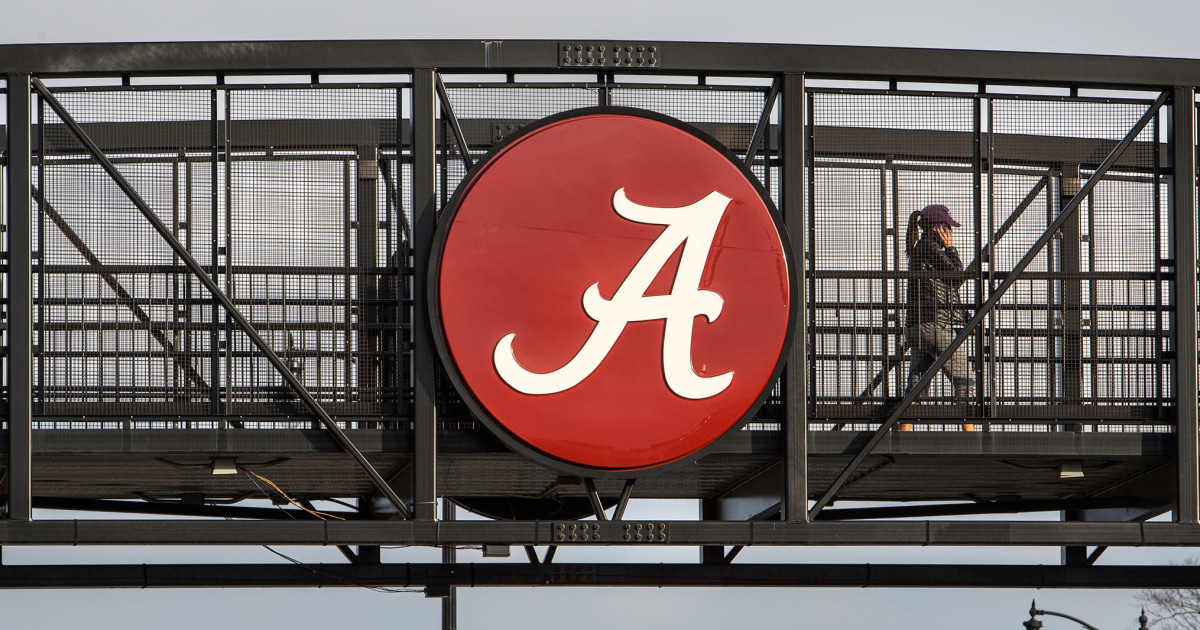Un hospital de Alabama suspendió este miércoles los tratamientos de fecundaciónin vitro (FIV) mientras los profesionales sanitarios evalúan el impacto el fallo de una corte estatal que declaró que los embriones congelados son el equivalente legal de los niños.
La Universidad de Alabama en Birmingham informó el miércoles en un comunicado de que su División de Endocrinología Reproductiva e Infertilidad ha suspendido los tratamientos “mientras evalúa la decisión de la Corte Suprema de Alabama de que un embrión congelado es un ser humano”, un fallo que ha generado múltiples reacciones de apoyo y preocupación.
Más temprano, la aspirante a la nominación republicana a la presidencia y exembajadora ante la ONU Nikki Haley, afirmó en una entrevista con NBC News que los embriones congelados creados mediante FIV son “bebés”, y se alineó así con la decisión del máximo tribunal de Alabama, que suscitó preocupación entre médicos y pacientes sobre el futuro del procedimiento.
Fachada de la Corte Suprema de Alabama, en Montgomery, el 20 de febrero de 2024.Associated Press
Haley añadió que utilizó la inseminación artificial para tener a su hijo, un proceso diferente a la FIV que no presenta las mismas complejidades en torno a la creación de embriones en un laboratorio. “Cuando se habla de un embrión, para mí es una vida. Y por eso entiendo de dónde vienen cuando hablan de eso”.
Como precandidata presidencial para 2024, Haley ha tratado de encontrar un término medio en su discurso sobre las políticas sobre salud reproductiva. En los debates ha pedido repetidamente un “consenso” nacional sobre el aborto, en lugar de las prohibiciones y restricciones favorecidas por algunos de sus oponentes en las primarias.
Pero cualquier medida que pueda restringir la FIV parece ampliamente impopular. En un artículo publicado en el Washington Post en 2022, unos politólogos que analizaron más de una década de datos de sondeos descubrieron que sólo una pequeña minoría de los votantes que se oponen al aborto se oponen también a la FIV.
[Voces latinas en la lucha por el derecho al aborto en Texas: “Me duele que estas historias no se cuentan tanto”]
For its part, in a statement, the Division of Reproductive Endocrinology and Infertility at the University of Alabama at Birmingham indicated that "we are saddened that this will affect our patients' attempts to have a baby through IVF, but we must evaluate the possibility that our patients and our doctors could be criminally prosecuted or face punitive damages for following the standard of care for IVF treatments.”
Other fertility treatment providers in the state have continued to offer IVF as lawyers studied the fallout from the ruling.
The ruling by the Republican-majority Alabama Supreme Court sparked a wave of concern about the future of IVF treatments in the state and the potential unintended consequences of extreme anti-abortion laws in Republican-controlled states.
Patients called clinics to find out if scheduled IVF treatments would continue.
Their suppliers, for their part, consulted with lawyers.
The justices, citing language in the Alabama Constitution that the state
recognizes the “rights of the unborn child
,” said three couples could sue for wrongful death when their frozen embryos were destroyed in a car accident. storage facility.
[Florida court evaluates whether abortion amendment can appear on the ballot]
“Unborn children are 'children' [...] without exception based on developmental stage, physical location, or any other accessory characteristic,” Justice Jay Mitchell wrote in Friday's majority ruling by the Republican court.
Mitchell stated that the court had previously ruled that a fetus killed when a woman is pregnant is covered by Alabama's Wrongful Death of a Child Act and nothing excludes “extrauterine children from the coverage of the law.”
The ruling brought with it a flood of warnings about the potential impact on fertility treatments and the freezing of embryos, which until then had been considered property by the courts.
Groups representing both IVF treatment providers and patients seeking fertility treatments were alarmed by the decision.
The patients, meanwhile, wondered what situation they would be in.
Gabby Goidel, 26, who is undergoing IVF treatment
in Alabama after three miscarriages, told The Associated Press that the Supreme Court ruling was released the same day she began receiving daily injections before egg retrieval.
"It took me by surprise.
It was the only thing she could think about and
it was very stressful to find out
.
I immediately messaged my clinic and asked if this could put a damper on us.
They told me that we had to go day by day,” Goidel explained.
Barbara Collura, executive director of RESOLVE: The National Infertility Association, told AP that the decision raises questions for providers and patients, including whether they can freeze future embryos created during fertility treatment, or whether patients would ever be able to donate or destroy unused embryos.
The Alabama Supreme Court's decision hinged in part on anti-abortion language added to the Alabama Constitution in 2018, which states that it is the “policy of this state to ensure the protection of the rights of the unborn child.”
Eric Johnston, an anti-abortion activist and lawyer who helped draft the constitutional language, noted that the “purpose of it was more related to abortion.”
He expanded that he intended to clarify that the Alabama Constitution does not protect the right to abortion and that, over time, this laid the groundwork for Alabama to ban the procedures when states regain control of access.
“Modern science has raised the question of whether a frozen fertilized egg is a person.
And that is the ethical, medical and legal dilemma we have now.
[…] It is a very complicated issue,” commented Johnston.
However, opponents of the constitutional amendment warned in 2018 that it was essentially a measure that
could grant rights to fertilized eggs
.
With information
from The Associated Press
and
NBC News

